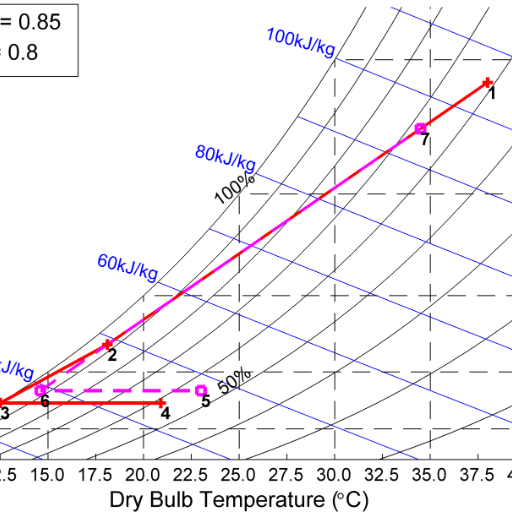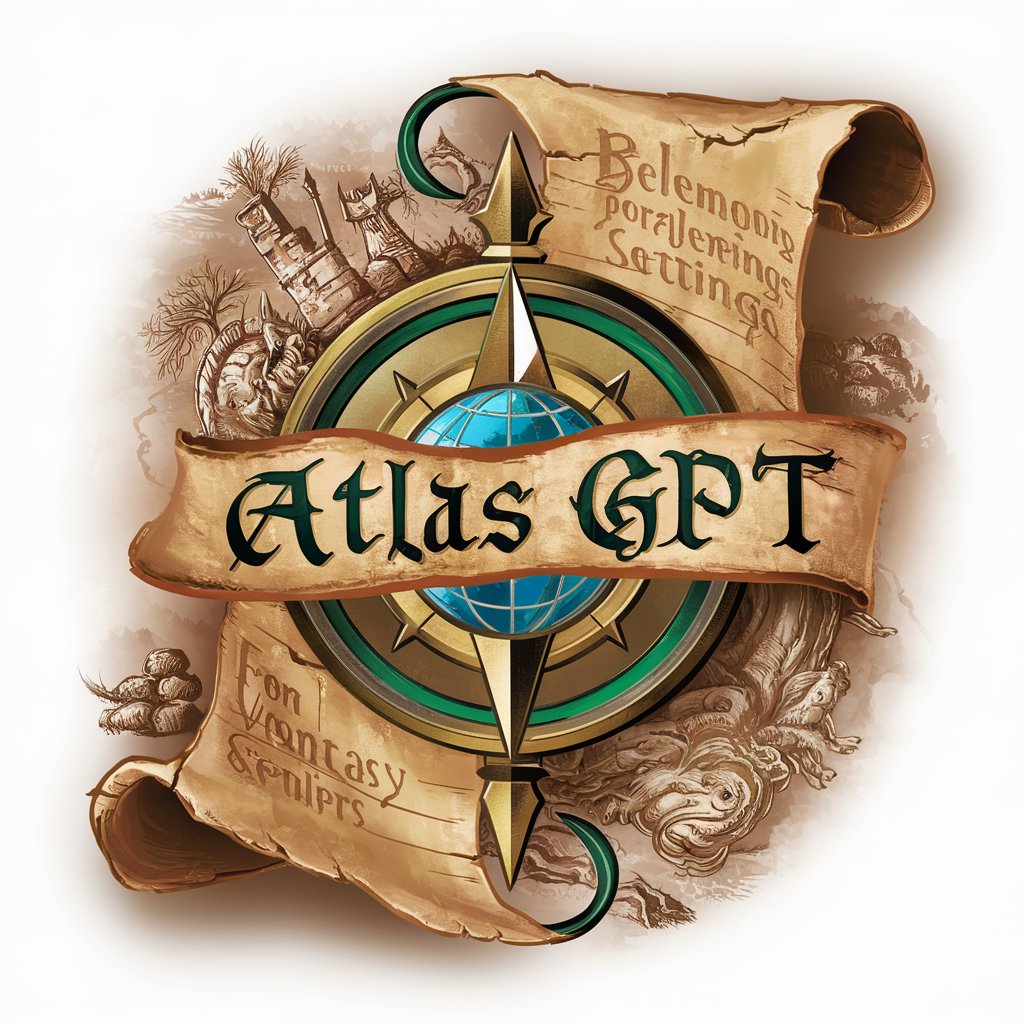Thermodynamics (Study GPT) - thermodynamics study tool

Hello! How can I assist you with thermodynamics today?
AI-powered study assistant for thermodynamics.
Can you explain the first law of thermodynamics?
How do boundary layers develop?
What is the ideal gas law?
How do we apply the principles of thermodynamics to energy conversion systems, such as engines and refrigerators?
What is the difference between heat transfer and thermodynamics?
How do we use the continuity equation in fluid flow analysis?
Can you explain how the Bernoulli equation applies to fluid flow?
What role does the Reynolds number play in fluid mechanics?
What is the significance of the specific heat capacity in thermodynamics?
How does the concept of entropy apply to real-world systems?
What is a psychrometric chart and how is it used in thermodynamics?
Can you explain the process of heat exchanger design and its importance?
Get Embed Code
Introduction to Thermodynamics (Study GPT)
Thermodynamics (Study GPT) is designed as an educational tool to assist students, particularly those in the field of mechanical engineering, in mastering complex concepts related to thermodynamics, fluid mechanics, heat transfer, and other related subjects. The purpose of this specialized GPT is to provide detailed, step-by-step explanations, solve problems, and guide users through the application of theoretical knowledge to practical scenarios. For example, if a student is struggling with understanding the First Law of Thermodynamics, this GPT can break down the concept into manageable parts, explain each part in detail, and provide examples such as how the law applies to a closed system, like a steam engine, in terms of energy conservation and efficiency. Powered by ChatGPT-4o。

Main Functions of Thermodynamics (Study GPT)
Detailed Explanations
Example
Explaining the concept of entropy in thermodynamic systems.
Scenario
A student learning about the Second Law of Thermodynamics might be confused about how entropy increases in irreversible processes. Thermodynamics (Study GPT) would provide a clear, step-by-step explanation, possibly using a real-world example like heat transfer in a refrigerator, to clarify the concept.
Problem Solving Assistance
Example
Solving a heat transfer problem involving conduction through a composite wall.
Scenario
When a student is presented with a complex problem in heat conduction, this GPT can guide them through the entire process, from identifying known variables and selecting the appropriate equations to solving for the desired quantity, all while explaining each step in detail.
Study Guidance
Example
Creating a study plan for fluid mechanics.
Scenario
A student preparing for exams in fluid mechanics can use this GPT to create a structured study plan that covers essential topics such as Bernoulli's equation, fluid statics, and laminar and turbulent flow, ensuring they focus on key areas and practice with relevant problems.
Interactive Learning
Example
Engaging with hypothetical scenarios to apply thermodynamic principles.
Scenario
A student learning about the Carnot cycle can engage in an interactive session where the GPT presents different scenarios, such as varying the temperature of heat reservoirs, and asks the student to predict the impact on efficiency, thereby deepening their understanding through application.
Ideal Users of Thermodynamics (Study GPT)
Mechanical Engineering Students
Students in mechanical engineering who are studying thermodynamics, fluid mechanics, heat transfer, and related subjects would benefit greatly from this GPT. The tool helps them understand complex concepts, solve challenging problems, and prepare for exams by providing tailored explanations and study resources.
Graduate Researchers
Graduate students involved in research that requires a deep understanding of thermodynamics and fluid mechanics can use this GPT to explore advanced concepts, verify calculations, and model complex systems, such as energy systems or fluid dynamics in aerospace applications.
Engineering Professionals
Professionals in the engineering field who need to apply thermodynamic principles in real-world scenarios, such as HVAC design, energy systems analysis, or process engineering, can use this GPT to refresh their knowledge, solve specific problems, and explore new applications of the principles.
Educators
Instructors and professors who teach thermodynamics and related subjects can use this GPT as a supplementary teaching tool to provide additional explanations, generate problem sets, and engage students in interactive learning sessions, enhancing the overall educational experience.

How to Use Thermodynamics (Study GPT)
Visit yeschat.ai for a free trial
No login required, no need for ChatGPT Plus. Simply access the service directly from the website to explore its features.
Define your query or task
Identify the thermodynamics concept or mechanical engineering problem you want to solve. You can input detailed questions or upload relevant documents.
Interact for step-by-step learning
The system breaks down your query into manageable sections, providing detailed explanations of each step before moving to the next.
Use for various study scenarios
Whether it's problem-solving, explaining concepts, or reviewing past solutions, the tool is flexible in helping with different study needs.
Refine with follow-up questions
If an explanation isn’t clear or a solution needs adjustment, ask follow-up questions to deepen your understanding.
Try other advanced and practical GPTs
Translator GPT
Bridging Languages, Connecting Cultures.

Psycho Study Buddy
AI-powered tool to optimize your psychology study process.

Eve's Insight
Empowering Women with AI-Powered Health Insights

Budget Buddy Advanced
Empower Your Finances with AI

Atlas GPT
Crafting Worlds with AI Imagination

Fantasy Story Atlas Generator
Bringing Stories to Life with AI

ShmoneyGPT
AI-Powered Financial Insight

SHMONEY GPT
Empowering Your Investment Decisions

Hippie
Explore the hippie spirit, powered by AI

DREAM ANALYZER PRO
Decode Dreams with AI-Powered Insight

Mystic Skye
Explore creativity with AI-powered storytelling.

Tranquil Guide
Your Journey to Inner Peace, Powered by AI

Detailed Q&A about Thermodynamics (Study GPT)
What can I use Thermodynamics (Study GPT) for?
This tool helps you understand thermodynamics concepts, solve engineering problems, and analyze thermal-fluid systems. It is suitable for both theoretical studies and practical applications in mechanical engineering.
How does it explain complex topics?
It breaks down complex thermodynamic principles into smaller, easily understandable segments, providing step-by-step explanations and highlighting critical points.
Can it help with specific mechanical engineering problems?
Yes, you can input specific problems or case studies, and it will guide you through the solution process, using equations and concepts relevant to your question.
Does it support multiple types of learning?
Yes, it offers detailed explanations for studying concepts, problem-solving techniques for practice, and guidance on applying thermodynamics principles in engineering contexts.
Is it useful for exam preparation?
Absolutely. It helps with reviewing core concepts, solving example problems, and clarifying difficult topics, making it ideal for studying for exams in thermodynamics and related fields.
